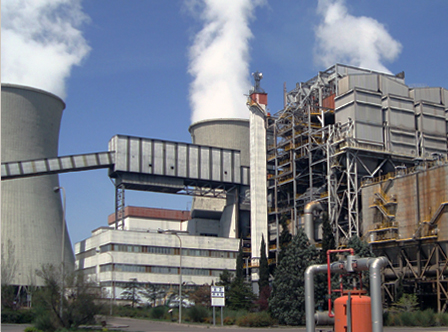INTERVIEW


Jorge Martínez Toral, coordinator of diesel engines at the energy giant Endesa, is an expert in the application of new lubrication systems for industry. A man with an in-depth knowledge of the field, Martínez Toral has worked with specialists from IK4-TEKNIKER in the application of new systems for this company. In his opinion, the technology centre’s participation has proved "vital".
1.- Endesa has always been a pioneer in the establishment of comprehensive lubrication management plans. What advantages do these plans offer for machinery, over and above cost savings and a longer working life?
The implementation of these management programmes enables an increase in the availability and reliability of the machinery, which in an industry like ours are key aspects which have a major impact on the company’s economic income in both the short and long term. But we should not forget another advantage offered by these programmes, which is largely overlooked; I am referring of course to reduced lubricant costs, since the consumption of these products is optimised.
2.- Is Endesa an exception within the industrial world? What is the situation regarding lubrication management in Spanish industry in general, in comparison with European industry, and what (if any) is the scope for improvement?
I believe that over recent years there has been a growing awareness in Spanish industry of the need to improve existing lubrication processes. Lubrication has always been held in much lower esteem in our factories than, say, fuel management, which has received a great deal more attention. I don’t think Endesa is an exception in the implementation of these programmes.
The situation regarding the technical management of lubrication in Spain has improved over recent years, although it cannot be denied that there is still much room for improvement. The implementation of these management systems is the most difficult stage, since it means changing the way in which operators work down on the shop floor. Making people understand that lubrication is not just the concern of a few, but rather everyone’s problem, is not always easy.
3.- Endesa worked with IK4-TEKNIKER to implement its lubrication management system. How did the technology centre contribute to the adoption of best lubrication practices by companies?
IK4-TEKNIKER’s participation has been vital. We have only a limited staff and do not have people who specialise in every area. IK4-TEKNIKER gave us the benefit of their experience and knowledge in one particular field, namely lubrication, which in turn encompasses a number of different aspects, all of which have to be controlled. IK4-TEKNIKER provided us with working guidelines which enable us to manage everything from the lubricant warehouse and contamination control to the correct transfer of the product to the machine.
4.- How important is staff training to ensuring good lubrication management in a company?
It is essential that staff receive training in order to ensure good technical management of lubrication. A deep-rooted change is required in the traditional approach adopted to lubrication. In order to correctly lubricate a machine, a thorough study and analysis must first be carried out of all the aspects which make up what we call the lubrication chain.
5.- Can small and medium-sized industrial firms adopt these new lubrication management methods, just like large companies?
Of course. The technical management programme can be tailor-made to suit the specific needs and characteristics of all types of company. Moreover, the working methods do not depend on the size of the company, and are the same in all cases.



